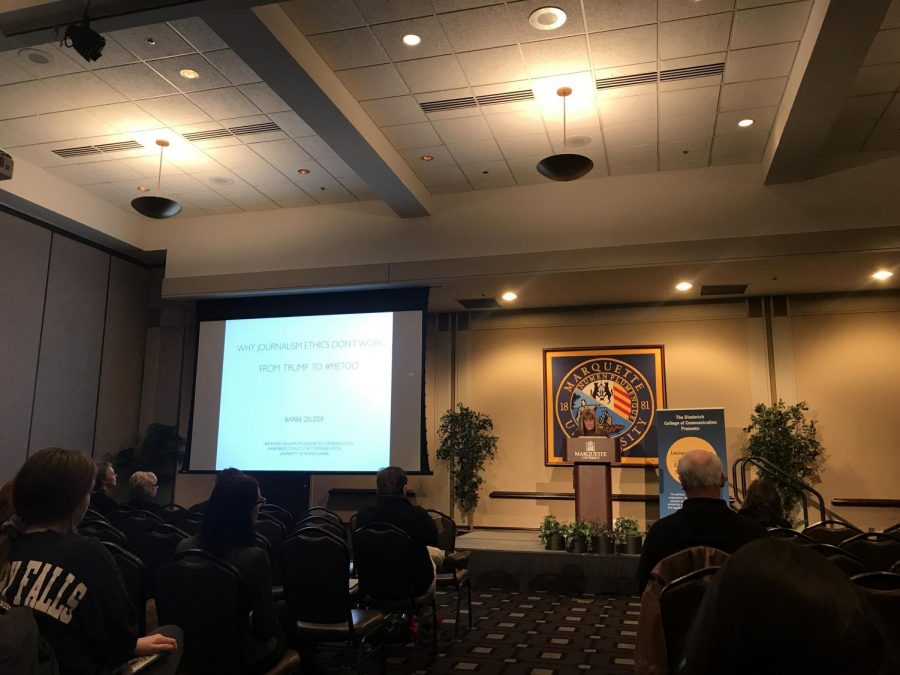
Lucie Sullivan
This year’s Nieman Conference keynote speaker, Barbie Zelizer argued that the media failed in its coverage of challenging topics such as President Donald Trump and #MeToo. She said the misguided and unrealistic code of journalism ethics is to blame.
The author, journalist and professor of communication at the University of Pennsylvania spoke at the annual Nieman Conference Feb. 21 at the Alumni Memorial Union.
The lecture was divided into three parts: What is problematic about journalism ethics, how it hindered journalists from covering movements and how unethical journalistic behavior continues to go unnoticed.
“Journalism ethics is a pristine notion of what should be, with very little idea of how it is on the ground and without getting to the question of what journalism is for,” Zelizer said.
Zelizer’s central argument was that journalists have been held to an impossible standard of neutrality and authority. Zelizer said she thinks that needs to change, and there are issues in the coverage of Trump and the #MeToo movement. Those problems resulted from the fundamental failings of journalism ethics.
Zelizer began her career in journalism as a reporter for Reuters in the Middle East. After some time in the field, she said she began to question the ethical basis of her practice.
“There came a moment when I thought that whatever it was that journalists were reporting was being taken as full, authoritative record when people had no way of checking whether or not that was the case,” Zelizer said.
With the fatigue of being a wire services reporter weighing on her, Zelizer said she decided to leave Reuters and pursue a Ph.D. from the University of Pennsylvania with this question in mind: How do journalists establish themselves as authorities for the things going on in the world?
“Seventeen books later, I’m still asking the same question,” Zelizer said.
But if there is not a set of codes, Liz Marino, a senior in the College of Arts & Sciences, said she doesn’t know where to go from there.
“Abandoning a code of ethics forces you to trust a journalist’s personal ethics, which may be problematic,” Marino said.
Zelizer said she is not arguing that reporters should be free to act unethically, but rather that journalists be treated less as high moral figures and more like regular people, with opinions on and connections to the stories they cover.
“Journalism needs to provide a way for communities to see themselves beyond themselves,” Zelizer said. “And right now it’s failing to do so in distressingly familiar ways.”
